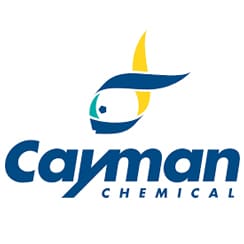
SIRT3 (human recombinant)
- Brand: Cayman Chemical
- Catalog No.: 10011194
- Quantity/Unit: 100 ug/Pack
- Availability: Out Of stock
For lab/research use only, unless otherwise specified
The sirtuins (SIRTs) represent a distinct class of trichostatin A-insensitive lysyl-dEAcetylases (class III HDACs) and have been shown to catalyze a rEAction that couples lysine dEAcetylation to the formation of nicotinamide and O-acetyl-ADP-ribose from NAD+ and the abstracted acetyl group.1,2,3 There are seven human SIRTs, which have been designated SIRT 1-7.4 SIRT3, is a mitochondrial protein, with its N-terminal 25 amino acid residues responsible for its localization.5,6 Synthesized as an enzymatically inactive protein, human SIRT3 is activated by a matrix-processing peptidase.6 Recently, it was demonstrated that SIRT3 is translocated to the mitochondria from the nucleus during cellular stress or by the overexpression of SIRT3 itself.7 In mice, caloric restriction up-regulates SIRT3 expression levels in white and brown adipose tissue (WAT & BAT). Cold exposure also induces SIRT3 in brown adipose tissue (BAT).8 The constitutive expression of SIRT3 promotes the expression of PGC-1a, UCP1, and other genes involved in mitochondrial functions, indicating that SIRT3 modulates adaptive thermogenesis in BAT.8Technical InformationSynonymsMitochondrial Nicotinamide Adenine DinuclEAr-dependent DEAcetylaseNAD-dependent DEAcetylase 3Silent Information Regulator 3SIR2L3SIR2-like Protein 3Sirtuin 3SourceActive recombinant N-terminal His-tagged enzyme amino acids 101-399 purified from E. coliMW37 kDa (theoretical); 33.5 kDa (observed). The identity of SIRT3 protein was confirmed by mass spectrometry.Formulation50 mM sodium phosphate, pH 7.2, containing 100 mM sodium chloride and 20% glycerolUniProt Accession Q9NTG7





